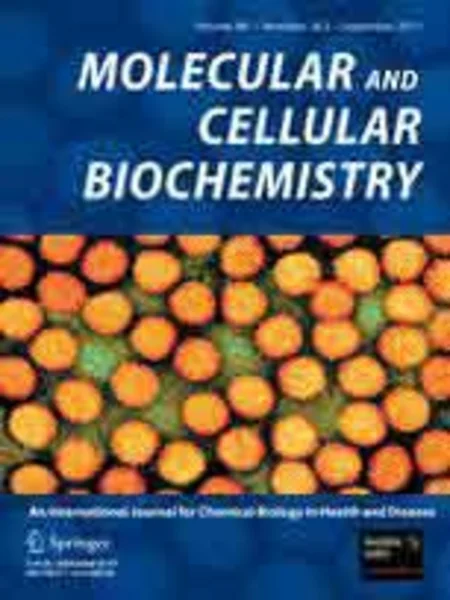-
oleic acid promotes adaptability against oxidative stress in 3t3-l1 cells through lipohormesis
جزئیات بیشتر مقاله- تاریخ ارائه: 1392/07/24
- تاریخ انتشار در تی پی بین: 1392/07/24
- تعداد بازدید: 1177
- تعداد پرسش و پاسخ ها: 0
- شماره تماس دبیرخانه رویداد: -
although fatty acids are important components of biological membranes, energy sources, and signal transducers or precursors of lipid mediators, excess intake of fatty acids and their accumulation cause obesity and metabolic syndrome. thus, fatty acid quantity is known to be an important factor for obesity-related diseases, but the effects of different types of fatty acids (i.e., fatty acid quality) on human health are not completely understood. we here focused on the relationship between fatty acid quality and oxidative stress by investigating whether resistibility to tert-butyl hydrperoxide (t-buooh)-induced oxidative stress in 3t3-l1 cells varied according to the fatty acid type. among eight fatty acids (both saturated and unsaturated) tested, oleic acid (oa) exerted the most pronounced cytoprotective effects, with efficacy over a wide range of concentrations. oa treatment markedly enhanced the intracellular levels of lipid peroxidation markers, including n ε-(hexanoyl)lysine, 4-hydroxy-2-nonenal, and acrolein. the levels of these markers in oa-treated cells were decreased after t-buooh exposure, whereas the levels in untreated control cells were notably increased after t-buooh exposure. our results suggested that unsaturated fatty acids, particularly oa, could promote an adaptive response and enhance cell tolerance through increased cellular antioxidative capacity via oa-induced mild lipid peroxidation (lipohormesis), and thus protect cells against subsequent oxidative stress-related injury.
مقالات جدیدترین رویدادها
-
استفاده از تحلیل اهمیت-عملکرد در ارائه الگوی مدیریت خلاقیت سازمانی و ارائه راهکار جهت بهبود
-
بررسی تاثیر ارزش وجوه نقد مازاد بر ساختار سرمایه شرکت های پذیرفته شده در بورس اوراق بهادار تهران
-
بررسی تأثیر سطح افشای ریسک بر قرارداد بدهی شرکت های پذیرفته شده در بورس اوراق بهادار تهران
-
بررسی تأثیر رتبه بندی اعتباری مبتنی بر مدل امتیاز بازار نوظهور بر نقد شوندگی سهام با تأکید بر خصوصی سازی شرکت ها
-
تأثیر آمیخته بازاریابی پوشاک ایرانی بر تصویر ذهنی مشتری پوشاک ایرانی (هاکوپیان)
-
بررسی نقش و اهمیت ارتباط بین علوم روانشناسی در توسعه پایدار علوم انسانی
-
بررسی ارتباط محافظه کاری حسابداری با هزینه سرمایه در شرکت های پذیرفته شده بورس اوراق بهادار تهران
-
تأثیر عوامل آمیختۀ بازاریابی خدمات (7p) بر ترجیح مشتریان در انتخاب بانک ملی (مورد مطالعه : شعب شهرستان بیرجند)
-
مقاومت برشی خاک های غیر اشباع در شیروانی های خاکی
-
triple-frequency carrier ambiguity resolution for beidou navigation satellite system
مقالات جدیدترین ژورنال ها
-
مدیریت و بررسی افسردگی دانش آموزان دختر مقطع متوسطه دوم در دروان کرونا در شهرستان دزفول
-
مدیریت و بررسی خرد سیاسی در اندیشه ی فردوسی در ادب ایران
-
واکاوی و مدیریت توصیفی قلمدان(جاکلیدی)ضریح در موزه آستان قدس رضوی
-
بررسی تاثیر خلاقیت، دانش و انگیزه کارکنان بر پیشنهادات نوآورانه کارکنان ( مورد مطالعه: هتل های 3 و 4 ستاره استان کرمان)
-
بررسی تاثیر کیفیت سیستم های اطلاعاتی بر تصمیم گیری موفق در شرکتهای تولیدی استان اصفهان (مورد مطالعه: مدیران شرکتهای تولیدی استان اصفهان)
-
طراحی الگوی درمان مبتنی بر پذیرش و تعهد بر اساس اسلام
-
تاثیر سرمایه فکری بر رابطه بین حاکمیت شرکتی و عملکرد شرکت های پذیرفته شده در بورس اوراق بهادار تهران
-
اثربخشی مداخله مبتنی بر تنظیم هیجان بر راهبردهای نظم دهی شناختی هیجانی و ناگویی هیجانی در بیماران مبتلا به نارسایی عروق کرونر قلب
-
مشارکت زنان در انتخابات از دیدگاه فقه اسلامی با تأکید بر فرهنگ ملی افغانستان
-
the study of substituent effect on osmabenzene complexes




سوال خود را در مورد این مقاله مطرح نمایید :